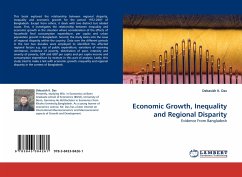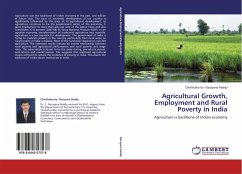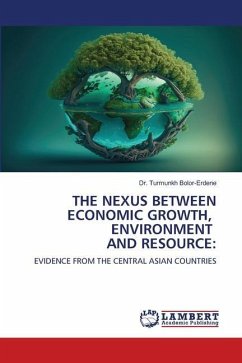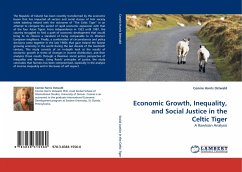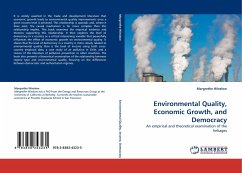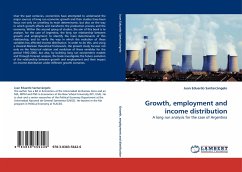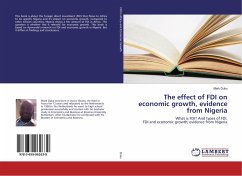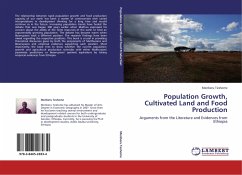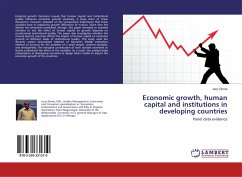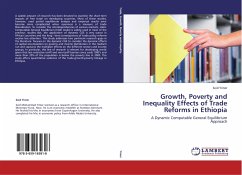
Growth, Poverty and Inequality Effects of Trade Reforms in Ethiopia
A Dynamic Computable General Equilibrium Approach
Versandkostenfrei!
Versandfertig in 6-10 Tagen
32,99 €
inkl. MwSt.

PAYBACK Punkte
16 °P sammeln!
A sizable amount of research has been devoted to examine the short-term impacts of free trade on developing countries. Most of these studies, however, used partial equilibrium analysis and empirical results even become more complicated when openness is a measure of trade liberalization. To consider the interdependencies of various markets, static Computable General Equilibrium (CGE) model is widely used in most of the previous studies. But, the application of dynamic CGE is very scarce in African countries and the long term consequences of trade policy reforms receive less attention. This stud...
A sizable amount of research has been devoted to examine the short-term impacts of free trade on developing countries. Most of these studies, however, used partial equilibrium analysis and empirical results even become more complicated when openness is a measure of trade liberalization. To consider the interdependencies of various markets, static Computable General Equilibrium (CGE) model is widely used in most of the previous studies. But, the application of dynamic CGE is very scarce in African countries and the long term consequences of trade policy reforms receive less attention. This study addresses two pertinent research gaps in the literature- focuses on the dynamic CGE to consider the dynamic effects of capital accumulation on poverty and income distribution in the medium run and captures the multiplier effects on the different sectors and income groups. In particular, this line of research is relevant for developing world given that less restrictive tariff and non-tariffbarriers since early 1990 s and more than 25% of the population is below the poverty line in 2005. The study offers quantitative evidence of the trade-growth-poverty linkage in Ethiopia.



